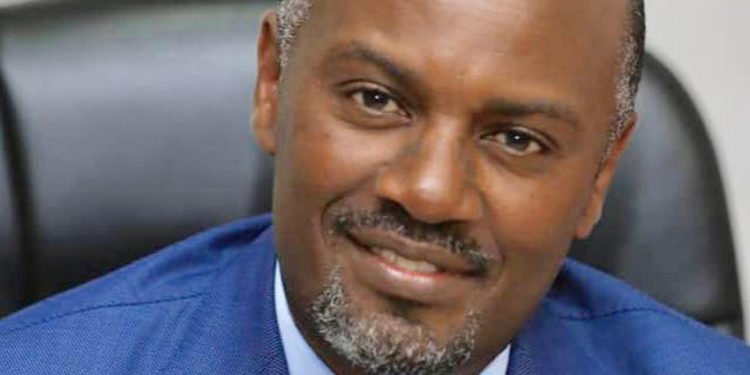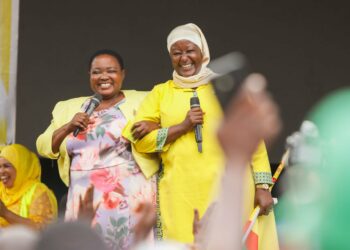On Sunday March 20th, speaker of parliament, Jacob Oulanyah, succumbed to a terminal illness in a hospital in Seattle – three days shy of his 57th birthday. He had been fighting for his life for over nine months. Outside, a crowd of wannabe Ugandans in America were demonstrating against his hospitalization abroad, insisting that government was wasting money to save his life. Many Ugandans believe such advanced and specialized medical services should be available in the country and should be provided for free to all citizens by the government. This is a level of thoughtlessness that is difficult to fathom.
It is sad that Oulanyah died before he had served any substantial amount of time as speaker. This has robbed us of an opportunity to experience his leadership at the top. We had a good idea of his ability and style since he had been deputy speaker for the previous ten years. Nonetheless, a deputy is a deputy and we needed to see Oulanyah with full powers. I am sure he was going to leave an enduring legacy on the speakership. Oulanyah possessed the right qualities for the job – a rare combination of toughness when necessary, and a soft reconciliatory touch.
Uganda’s parliamentarians can be rowdy, as they demonstrated during the constitutional amendment to remove age limits. Oulanyah knew how to use the rules, his strength of character and maturity of judgement to avoid such situations. This is why he was a darling of many MPs – he could be tough on them and yet retain their friendship and loyalty. He did this because he never took things personally. In his private space, he could easily lose his cool, but never in the performance of his official duties as speaker.
I knew Oulanyah very well, having met him when I was a student at Makerere University, him an intellectual on the Uganda political scene. This was in the mid 1990s during the constitution making process. We immediately struck a friendship. An agricultural economist who later studied law and became one of the best lawyers in town, Oulanyah was an all-rounder. He was a man with a big heart – open, generous, affable and always ready to engage.
In the late 1990s and early 2000s, I was a regular visit to his home in Muyenga-Kasanga, where I would meet his late wife Dorothy and their kids. Dorothy and Oulanyah were more than wife and husband. They were buddies as well. Around the house he took care of kids of his late sister, a young sibling and many people who had little means and sought his support. In my interactions with him, I realized that he was a congenital optimist always focused on the future. He always looked back to the past of course, not as a museum of remembrance but as a source of lessons on how to navigate the present and pursue the future he sought.
Oulanyah’s political life was a rollercoaster right from his student days. He was not new to the job of speaker having served as speaker to the student’s Guild Representative Council at Makerere University in the late 1980s. It is there that he built his friendship with the indefatigable Nobert Mao, president of DP, who was Guild President. During a strike over “cost sharing” where he was one of the leaders at the university in 1989, two students were shot dead, Oulanyah was injured. It was his initiation into national politics and propelled him to what became a life-long career.
The former speaker’s political journey is a powerful story of triumph against the odds. It is also a story of Uganda’s politics of conflict and reconciliation. He came from Acholi although his father (now 92 years young) is Langi. The region was characterized by a long running and brutal insurgency for the first 20 years of President Yoweri Museveni’s administration. Oulanyah, his family and people were victims of this insurgency, caught between an exceptionally brutal rebel group, the LRA, and government troops that were often violent and inconsiderate. It pained him. Yet in spite of this, he never lost his optimism or sense of perspective and never allowed his personal and community suffering to embitter his soul.
He was both a man of principle and a pragmatist even though the two seem an oxymoron. He knew too well the thin lines between principle and dogma: that when principle is taken too far, it becomes rigidity; and while unchecked pragmatism tends to opportunism. So, he always sought to strike a difficult balance between these contradictions – not to pursue a principle in a rigid manner as to defeat its purpose but also not to be too pragmatic as to sell his soul. It is a remains a singular triumph of his political career that he navigated this terrain with exceptional skill.
For instance, in the mid to late 1990s, Oulanyah used to tell me, and often even say it in public fora, that he was born UPC and will die UPC because that party’s plasma ran inside his blood. Yet when the right moment came, he quit UPC and joined the NRM, a political party he had long opposed. It is a mark of his political acumen and Museveni’s (and NRM’s) accommodating and reconciliatory approach to politics that this happened.
Before he crossed to NRM, Oulanyah sought my advice. I told him that I saw little ideological and personnel differences between NRM and UPC. NRM was a child of UPC – most of its leaders having been UPC youths-wingers who disagreed with its founding president, Milton Obote, rather than the party’s ideological inclinations and policy preferences. NRM had come to power articulating UPC’s 1969 leftist ideas, and just like UPC in the early 1980s, had embraced free market policies. The two parties were therefore similar. I encouraged him to join NRM, even predicting that his career in NRM will go beyond anything UPC could ever offer him.
In 2004, he was what used to be called opposition MPs although there was no such thing in the constitution of the time. He had chaired the parliamentary legal committee that was tasked to handle the sensitive issue of removal of term limits. Everyone expected Oulanyah to use his position to create a stalemate. But he was politically smart enough to recognize that democracy is a game of numbers, and the NRM had these. Using his position to suppress the move would be tantamount to abuse of office. He managed the process with such political and leadership skill that the committee approved the amendments without causing the kind of fist fights that characterized the removal of age limits.
But this cost him dearly. NRM was hated in Acholi region and his critics accused Oulanyah of “selling out.” During the 2006 elections, Museveni got 12% of the vote in Acholi, against Kizza Besigye’s 82%. Oulanyah’s reelection bit was dead on arrival. He was defeated. Yet he knew that history was on his side. With the end of the civil war in Acholi, the political mood was shifting favorably towards the NRM. In the 2011 elections, he triumphed and returned to parliament as an NRM MP and was elected deputy speaker.
Oulanyah was a student of Nelson Mandela. First, he never allowed his personal and community suffering to embitter his soul and turn him into a permanent protester against those who had perpetrated injustice against his people. Second, Oulanyah understood that you do not make peace with your friends but your enemies. Third, a liberal democrat by heart, Oulanyah knew that democracy is built on negotiation and compromise. Fourth, a mature and thoughtful politician, Oulanyah eschewed self-righteousness, seeing it as a destructive vice pursued by people who fear compromise because that would make them be seen as weak or sellouts. He was a man of boundless courage who was willing to disregard the labels purists threw at him in pursuit of the goals he had set. Uganda has few politicians like him.
Do you have a story in your community or an opinion to share with us: Email us at editorial@watchdoguganda.com













